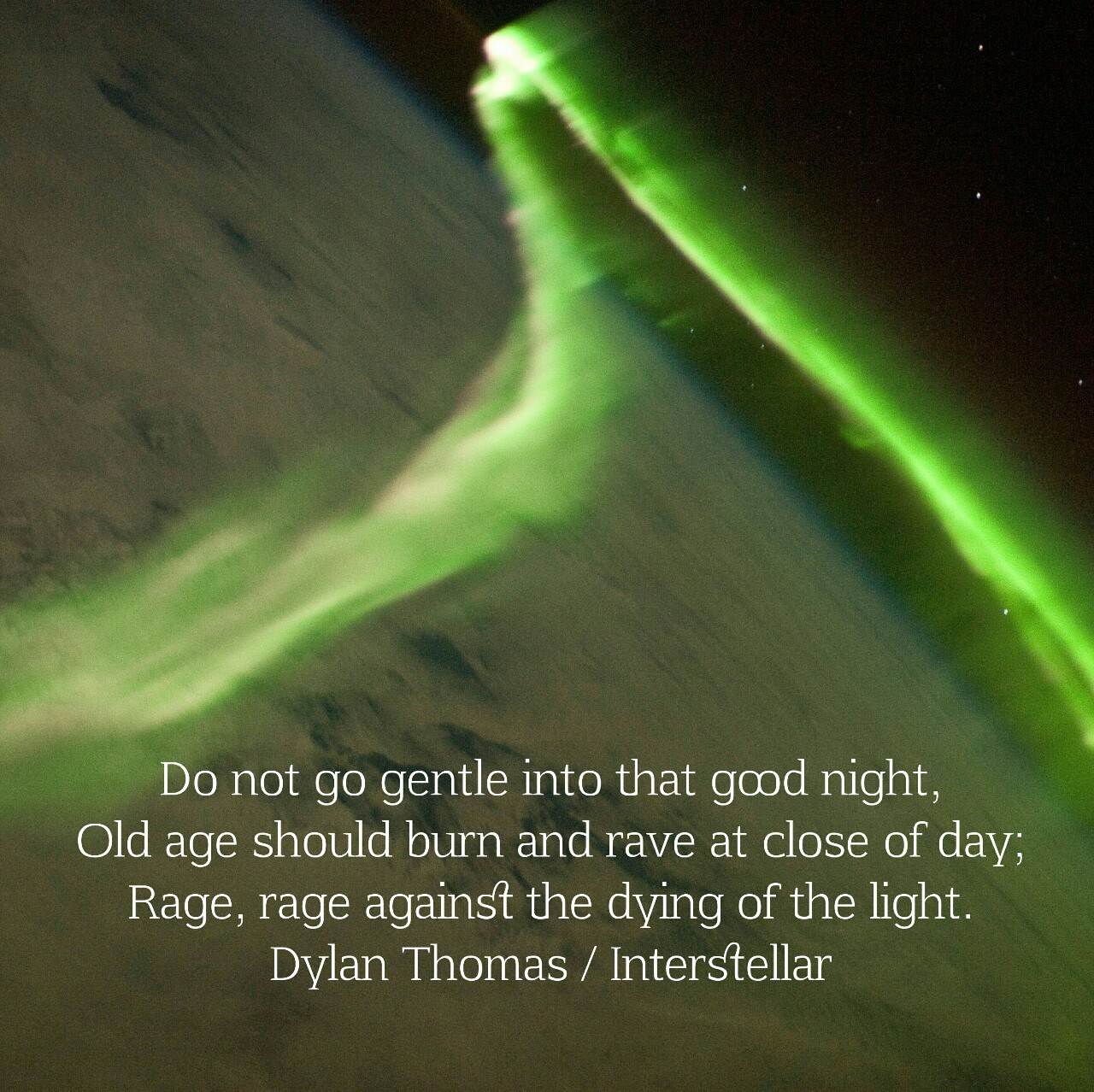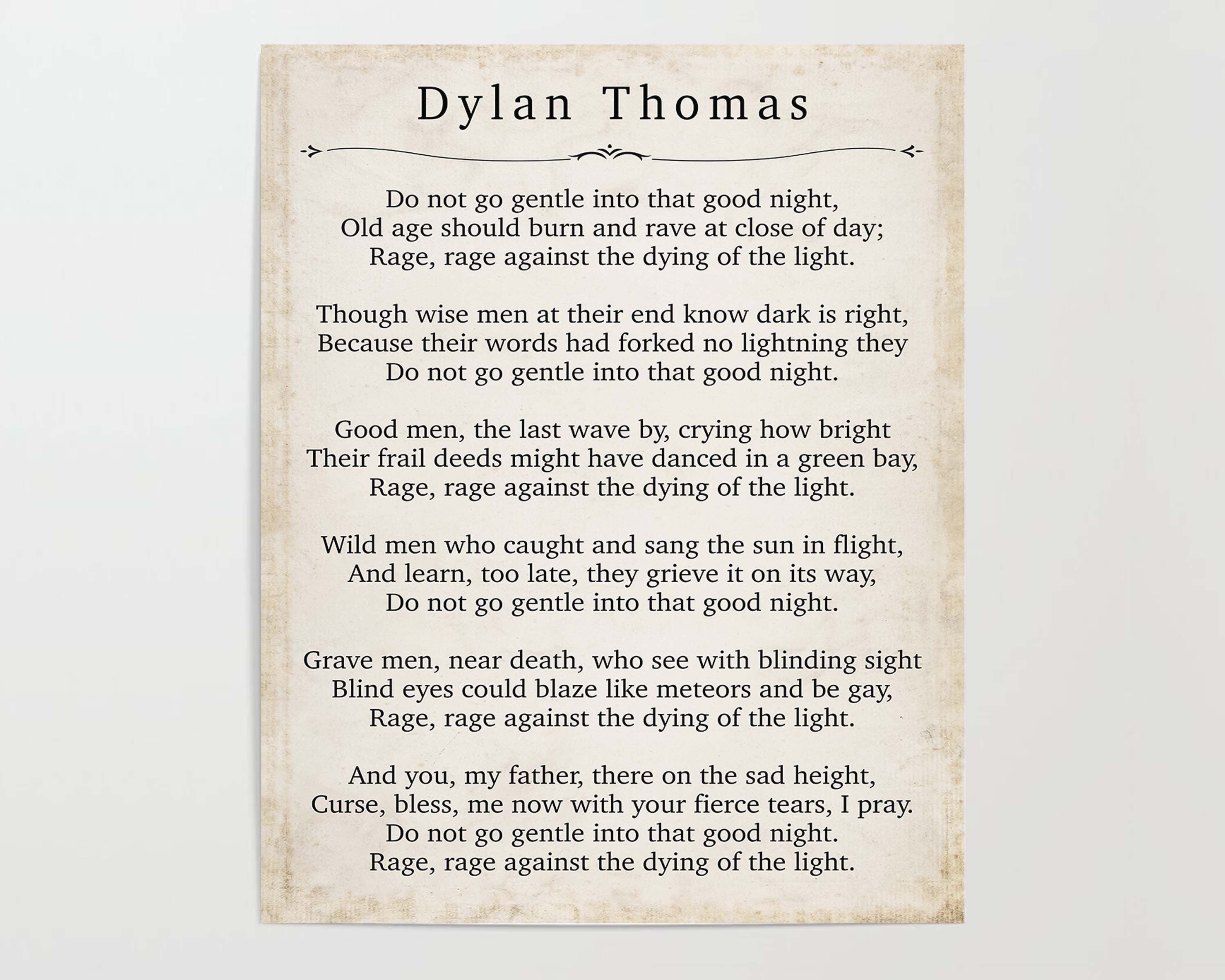

Without tools like hammers, wrenches, and saws, you couldn’t build a house. The speaker intends to give the reader room to identify the poem, to think over how it pertains to their lives, before situating the speaker’s own life in the specific, personal context.

Yet the speaker avoids disclosing, for a reason, that the poem is devoted to his or her father until the very end of the poem. After that point, the poem seems far less universal. But in the final stanza of the poem, the speaker admits he or she is addressing his or her father.

This renders the poem to sound universal: it extends to everyone its advice on how to face death with dignity. Come to understand that life has value and they must strive to make the most of their time here on earth. The poem offers basic guidance on how to face death with dignity, but it is also a profound and personal letter from a son to his dying father. That affects how one reads the poem: it feels deeply intimate. While the speaker has spent most of the poem talking in broad terms - among other things about ‘wise men’ and ‘good men ‘- (Thomas) he unexpectedly addresses someone specific: his father. The speaker abruptly shakes it up in the final stanza of ‘Do Not Go Gentle into That Good Night’. It also operates by alternating roles – the son, not the father, gives advice and the father, not the son, is vulnerable and in need of support and assistance. The theme of the family suggests the intensity of important family bonds. Therefore, ‘Do Not Go Gentle into That Good Night’ focuses on the actual final choice of a person: not about whether to die or not, but how they will meet the unavoidable. The poem’s characters don’t cheat death so they can live another day. It is worth noting that this is not a poem about victory over death, while Thomas urges readers to fight against death, its eventually inevitable for all beings. To simply put, Thomas advises readers that they should not roll over and accept death but instead contest (or ‘rage’) against it (‘the dying of the light’). The word ‘ gentle ‘ here means muted, or obedient, and without opposition. Specifically, though, this poem wants people to know ‘not to go gentle’ into death and dissolution. The statement ‘good night’ corresponds to death - where ‘good night’ applies to all people as we say farewell and the dying person who drifts into their final sleep. Mortality, and family, are the most evident themes depicted in this poem.ĭuring this poem’s time the narrator was witnessing his father’s death. The poem implies that we should leave this world (to use an old cliché) the way we came through-kicking and screaming, clutching on to life for just about everything we’re worth. ‘Do Not Go Gentle into That Good Night’ bemoans death’s obligation and inevitability, pushing the vulnerable to protest their destiny.


 0 kommentar(er)
0 kommentar(er)
